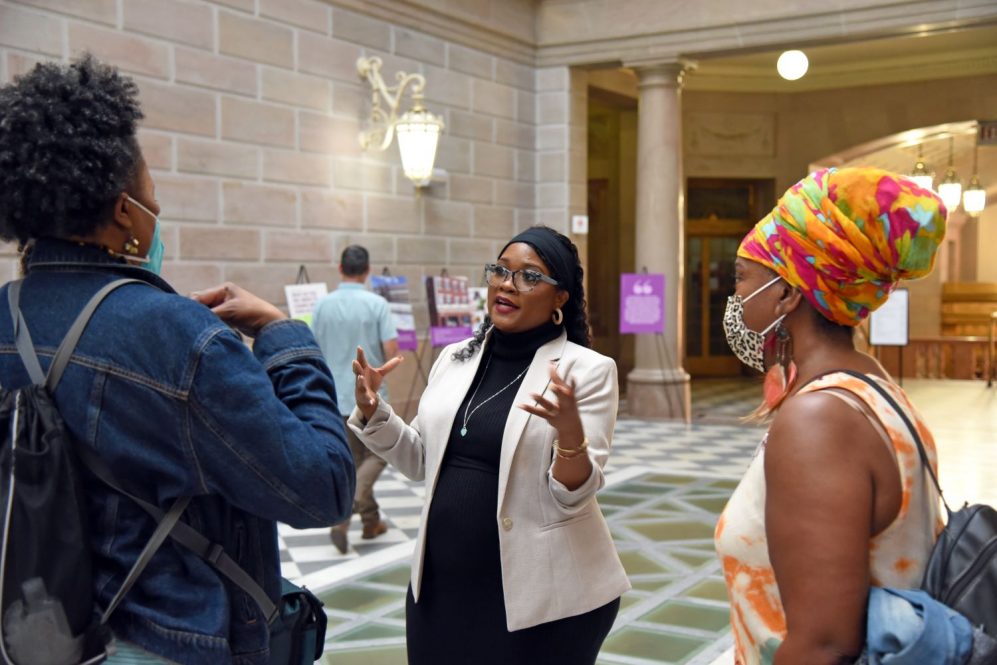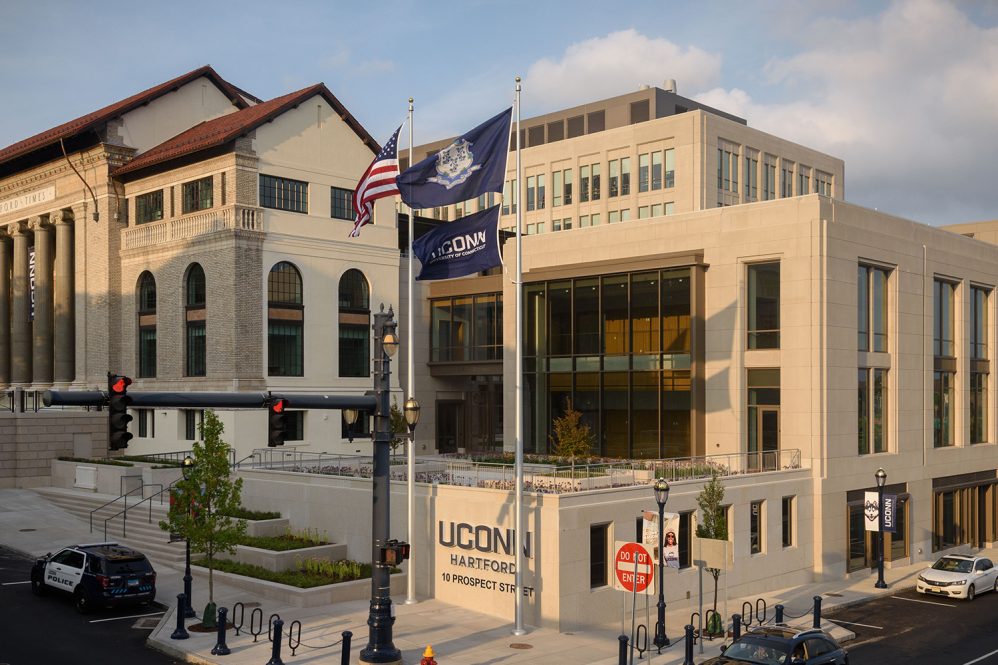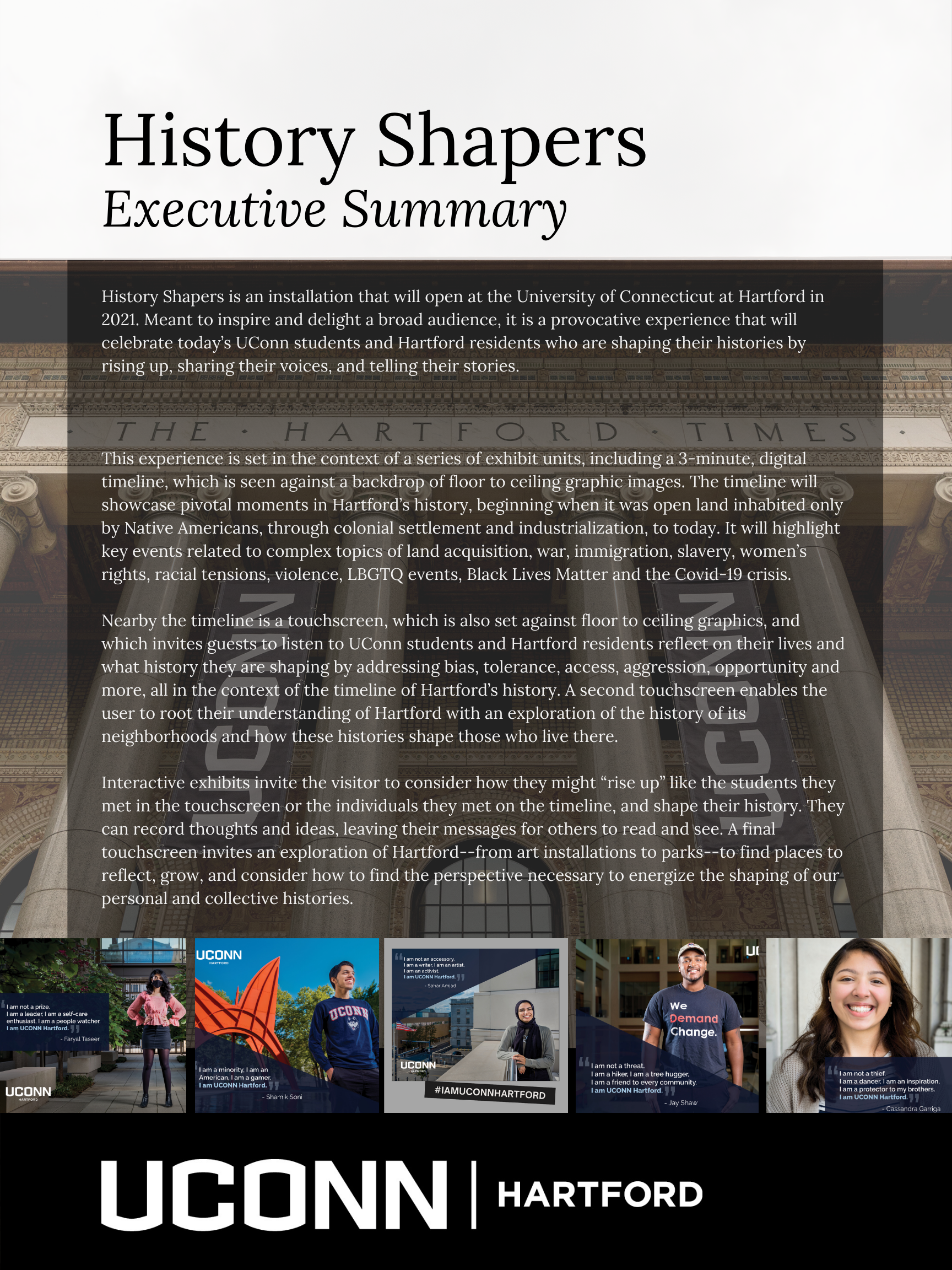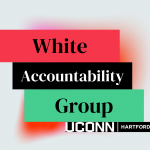

|

A two-day conference on “Anti-Racism in Education and the Community” will take place on Wednesday, April 13 and Thursday, April 14 at UConn Hartford and is open to all UConn faculty, staff, students and community partners.
The two days of presentations and speakers will be highlighted by keynote speaker Renée White, who is the provost and executive vice president for academic affairs at The New School, a private research institution in New York City.
“Dedicating a conference to the theme of anti-racism is relevant today,” says UConn Vice President and Chief Diversity Officer Frank Tuitt, who will deliver the closing remarks of the event. “Over the last couple of years, there has been a lot of activity, interest, and attention placed on addressing systemic and structural racism in a broad way. I think now that we have moved past some of the more public and high profile cases, attention has started to wane a little bit. Dedicating space in the form of a conference is a good way to make sure that we are not relaxing our focus on our efforts on addressing racism.”
The actual site for the conference event will be the Hartford Public Library on 500 Main Street, which has a working relationship with the UConn Library system. There will also be a virtual option for people to view the conference.

“The event will deal with issues of diversity, equity, justice and anti-racism in the context of being located in a city that is primarily brown, Black, refugees, and migrants,” says Mark Overmyer-Velázquez, the director of UConn Hartford. He will also be the opening speaker of the second day of the conference.
“This conference speaks explicitly to the mission of UConn Hartford, which is to provide an education to our students and serve the community of Hartford,” says Overmyer-Velázquez.
The funding for the conference comes from a grant from UConn’s Fund for Interdisciplinary Research (FIRE), which is administered by the executive council of El Instituto: Institute for Latina/o, Latin American, and Caribbean Studies, the Africana Studies Institute, the Asian and Asian American Studies Institute, and Women’s, Gender, and Sexuality Studies.
“Our proposal was to create a symposium that would better connect researchers, staff, students, and community in ways that would facilitate conversations about structural racism and education, but also give proper recognition that the tall task of talking about racism, researching racism, and solving the problems of racism do not belong to any one group, and that we might be able to do more collectively than in our siloed groups,” says David Embrick, an associate professor in sociology and Africana studies and director of the Sustainable Global Cities Initiative.
“The symposium is a chance to hear from one another about their contributions to the larger topic of anti-racism, education, and the community. To that end we will have sessions with panelists from the community, from students, from researchers, and from our UConn institutes and cultural centers,” Embrick said.
“We also realized that even though our proposal was approved for funding to put together a symposium this year, that this was an opportunity to fulfill a real need in collaborative engagement between UConn Hartford and the surrounding communities. We hope this will be an inaugural symposium, one that is followed by a yearly event that becomes institutionalized.”
Other UConn presenters at the event include Vice Provost of Faculty, Staff and Student Development Michael Bradford and Director of Africana Studies Institute Melina Pappademos. There will also be an interactive play produced by HartBeat Ensemble and several panel discussions.
“I’ve said in the past that part of our challenge is that we have a lot of folks within society and within our institutions who have really good intentions about addressing systemic racism, but perhaps don’t have the tools, skills and knowledge to do so,” says Tuitt. “This conference will allow us to do that in a very effective way and provide knowledge and insight so folks can really align their practices and good intentions and integrate them into work that really makes a difference.”
Registration for the event can be done here and please note the Tuesday, April 5 deadline.
“The mission of our regional campuses is to provide access to the state as a whole, and our work amplifies and extends the University’s efforts to be a place of educational excellence for the whole state,” says Overmyer-Velázquez. “Doing this type of work at UConn Hartford and the community of Hartford is responding to the mission of the entire University with the local focus of the people of our capital city.”

History Shapers is an installation that will open at the University of Connecticut at Hartford in 2021. Meant to inspire and delight a broad audience, it is a provocative experience that will celebrate today’s UConn students and Hartford residents who are shaping their histories by rising up, sharing their voices, and telling their stories.

The white accountability group (WAG) will occur over one hour a week for ten weeks. This will be a facilitated session by Joleen Nevers, Alaina Brenick and Mubera Bećirović. Through the examination of systems of privilege and white supremacy, participants will be able to understand the impacts of these systems and our behaviors on our community through anti-racism work. The commitment to this group is the hour a week and reflective time outside of the group. There may be some activities to prepare for outside of the group, which would amount to two hours over the course of the ten weeks.
White accountability groups are a place for white and white passing people to understand their own racism and privilege and how systems of oppression impact everyone. Through centering Black, Brown, Indigenous and People of Color in our lives and our world, we can start to understand our role in being complicit with racism and start to engage in action to work on ourselves and within all of the systems in which we are situated. We use a social-ecological lens to look at the impact of racism within ourselves, our relationships with others, within our community, and within our society.
By the end of the WAG participants will be able to:
Define terminology;
Define the impacts of racism on individuals;
Identify anti-racism strategies;
Practice anti-racism strategies.
We invite you to join us in this effort by dedicating an hour of your time per week over the course of 10 weeks. We plan to kick-off this effort on February 11th. All who plan to join will receive communication and calendar invites.
For more information, email us at engagement.hartford@uconn.edu.